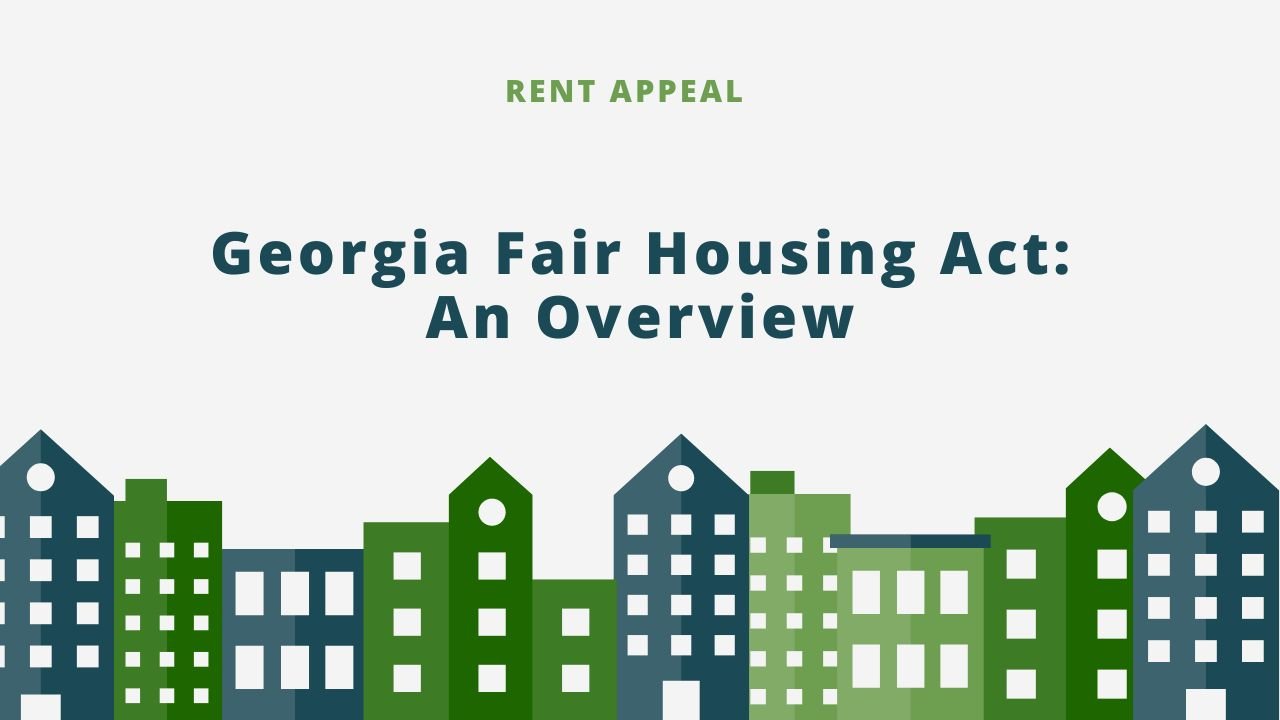 As a landlord, you are expected to treat each tenant equally, not only during tenancy but all throughout the entire rental application process. This is because the Federal Fair Housing Act commands all Georgia landlords to treat their prospects fairly and not be refused housing because of characteristics beyond their control.
The Fair Housing Act was founded to help guide Georgia landlords and raise awareness of tenants’ rights. As this is a federal law, the Fair Housing Act applies to all landlords in the USA. Penalties for violating this law or any other landlord-tenant law may include attorney fees, fines, and punitive damages.
The U.S. Department of Housing and Urban Development (HUD) provides many examples of housing practices that are considered discriminatory. This includes breaking a lease in Georgia and restricting or promoting services, privileges, or facilities of a property based on whether or not a prospect is a member of a protected class.
With the importance of the Federal Fair Housing Act, we at Rent Appeal have put together this article to go over the Fair Housing Act and how Georgia landlords can navigate it. But first, we would like to introduce you to the seven protected classes that are protected under the Fair Housing Act:
As a landlord, you are expected to treat each tenant equally, not only during tenancy but all throughout the entire rental application process. This is because the Federal Fair Housing Act commands all Georgia landlords to treat their prospects fairly and not be refused housing because of characteristics beyond their control.
The Fair Housing Act was founded to help guide Georgia landlords and raise awareness of tenants’ rights. As this is a federal law, the Fair Housing Act applies to all landlords in the USA. Penalties for violating this law or any other landlord-tenant law may include attorney fees, fines, and punitive damages.
The U.S. Department of Housing and Urban Development (HUD) provides many examples of housing practices that are considered discriminatory. This includes breaking a lease in Georgia and restricting or promoting services, privileges, or facilities of a property based on whether or not a prospect is a member of a protected class.
With the importance of the Federal Fair Housing Act, we at Rent Appeal have put together this article to go over the Fair Housing Act and how Georgia landlords can navigate it. But first, we would like to introduce you to the seven protected classes that are protected under the Fair Housing Act:
The Seven Protected Classes
Familial Status
As a landlord, you must not limit the available housing choices if the prospective children below 18 years old, are pregnant, or have any other family situation relating to their family.
Color
As a Georgia landlord, you must not lie about the availability of your rental property based on the location or community with respect to a protected class. The Fair Housing Law also prohibits applying different terms and conditions to a prospect because of their color.Race
It is considered discriminatory and illegal under the Fair Housing Act to deny any applicant housing based on their race.National Origin
A person’s national origin includes birthplace, language, ancestry, ethnicity, and culture. So, it is illegal to disqualify someone for housing based on any of these factors.Disability
The Georgia Fair Housing Act protects people who have a record of disability or are considered as disabled, from housing discrimination. Some people with disabilities may have a service animal that helps effects their disability. So, landlords without a pet policy cannot refuse housing or charge a higher security deposit fee because the tenant has a service animal. Under the Georgia Fair Housing Act, those rules may have to be modified to accommodate a person with a disability so they can bring an assistance animal with them to your property.Religion
Housing discrimination based on religion applies to both the practice and non-practice of any religion or religious belief and is illegal under the Fair Housing Act.Sex
In Georgia, landlords who refuse to rent to someone because of their gender identity or gender expression is a violation of the Fair Housing Act. Similarly, refusing applicants because of their gender is also violating this federal regulation. Rejecting an applicant should only be based on controllable factors such as ability to pay and their rental history.
Rejecting an applicant should only be based on controllable factors such as ability to pay and their rental history.
The Exemptions from the Fair Housing Law
There are cases that are exempted from the Fair Housing Act, such as:- owner-occupied homes that have four units or less
- the rent or sale of single-family homes without using a broker or agent
- private organizations or clubs
How Georgia Landlords Can Provide Fair Housing
The Georgia Fair Housing Act must be observed in all steps of the rental process. But Fair Housing discrimination does not only apply to those who are prospective renters but also existing tenants in renting your space. Here are some tips on how you can be compliant in each stage of the rental process when renting out your property:Marketing
Be inclusive when advertising your property and avoid using discriminatory words or phrases such as:- Family friendly
- English speakers only
- Cannot accommodate people with disabilities
- Adults only
- Female tenants only
Responding to Questions
When an interested applicant asks a question during a showing or about the listing, be honest and respond to their questions clearly. Leave nothing up for interpretation and make sure they are properly informed and can make an informed decision for themselves. Be consistent with your rates and be truthful. Let them know if the unit is still available or not. Charging extra for a family with kids or for a service animal is not providing equal opportunity to tenants and is a violation of the fair housing laws.
Be consistent with your rates and be truthful. Let them know if the unit is still available or not. Charging extra for a family with kids or for a service animal is not providing equal opportunity to tenants and is a violation of the fair housing laws.

